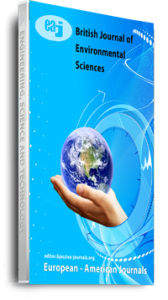The paper examined the municipal solid waste disposal methods and the environmental issues associated with the management of solid waste in Kano Metropolis, Nigeria. Primary data were obtained through administration of structured questionnaires to a random size of population in the areas that have the highest heaps of solid waste on the major streets and open spaces. Oral interviews and field observations were also carried out for holistic and detail assessment of the environment. Secondary data were obtained from desk review method; information on environmental issues resulting from poor management of municipal solid waste were obtained from relevant literatures. The results of the findings clearly show that major streets, several open spaces and even water ways are been used as refuse dump sites. The composition of the municipal solid waste in the city is heterogeneous; it contained both biodegradable and non-biodegradable materials which are mostly e-wastes, plastic and polythene materials. The study also reveals that most of the refuse dumps are left unattended to for a long period. The study further shows that population growth and uncontrolled urban expansion are responsible for the continuous growth of these refuse heaps at the shoulders of the major streets, open spaces and water bodies. There is no organized house to house or street to street collection of the solid waste in some parts of the metropolis. In few areas where large waste bins are provided, they are hardly used by the community. The major environmental issues resulting from improper disposal and poor management of solid waste in Kano metropolis are physical nuisance of the waste to the environment, the solid waste are blown around by winds or rainstorm making the environment dirty, the waste sometimes block drainage channels during rainstorm causing flooding in the metropolis. The heaps of the solid waste serve as good hideouts for reptiles, rodents, and other dangerous insects. The solid waste may decompose to emit methane gas which contributes to climate change. Most of the non-decomposable solid wastes contain harmful chemical elements which have severe health implications. Generally, the study shows that soil, air and water pollution in the study area are caused by both pathogenic and chemical elements from these heaps of solid waste that dot some of the major streets and open spaces. Therefore, the paper recommends that a strong legislation with severe sanction be put in place and they should be a continuous public enlightenment on the danger of municipal waste to the general public. It is also recommended that available market be created for these waste that can be recycled.
Keywords: Biodegradable, Chemical Elements, Electronic Wastes, Environment, Harmful, Management, Metropolis, Non–biodegradable, Refuse Dumps, Solid Wastes

